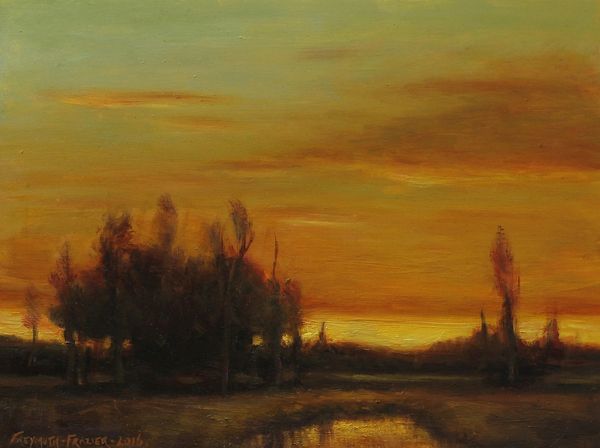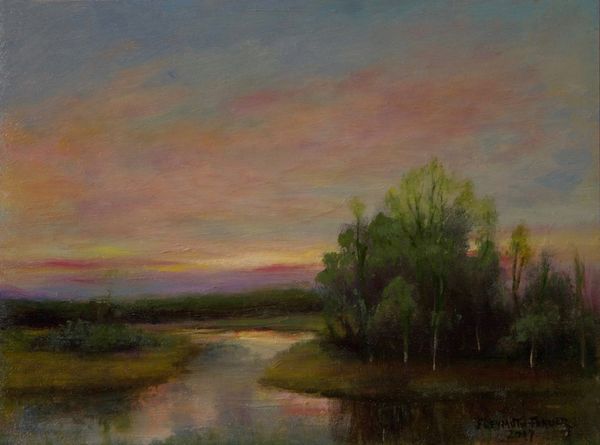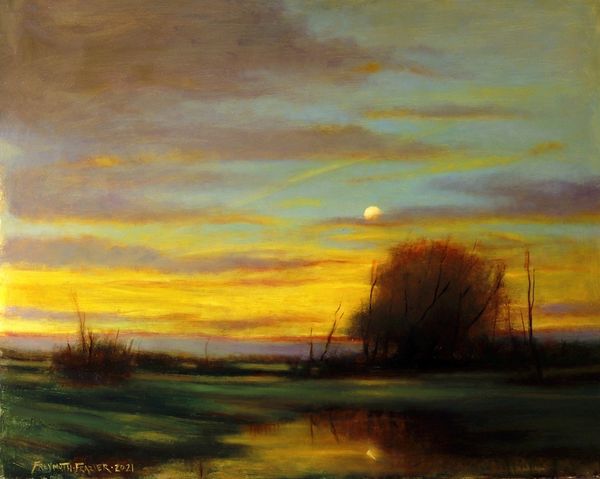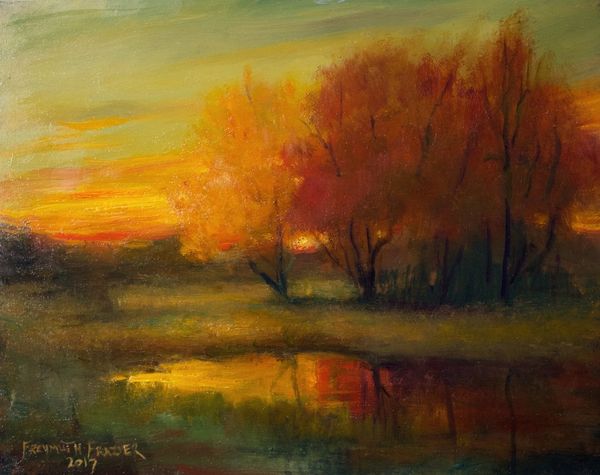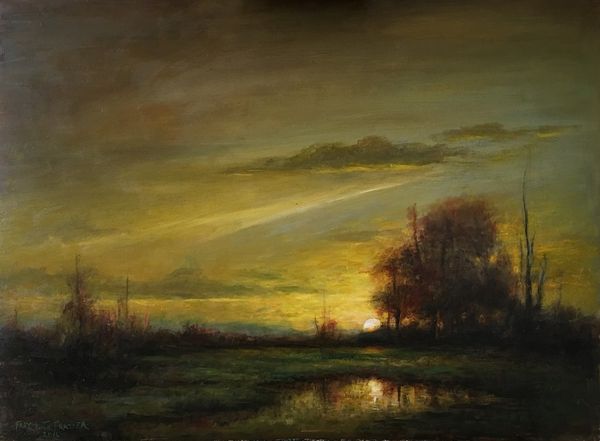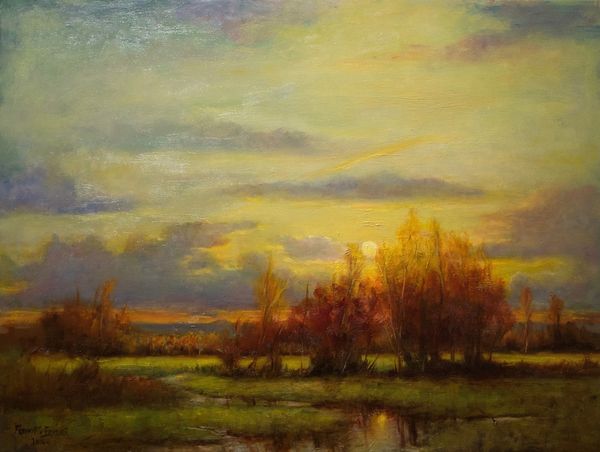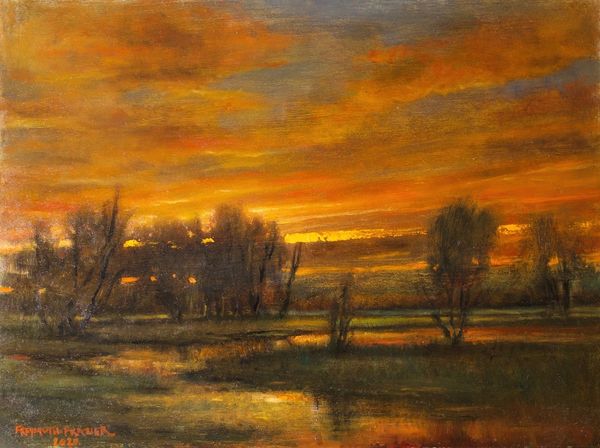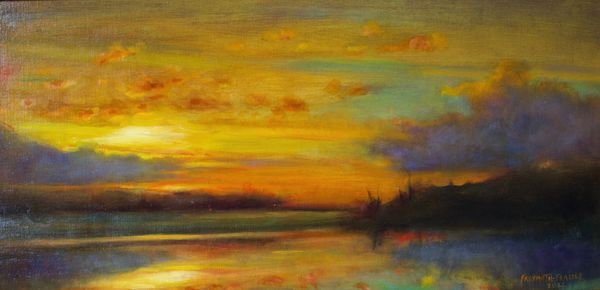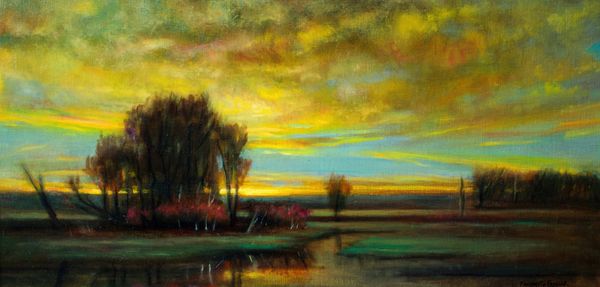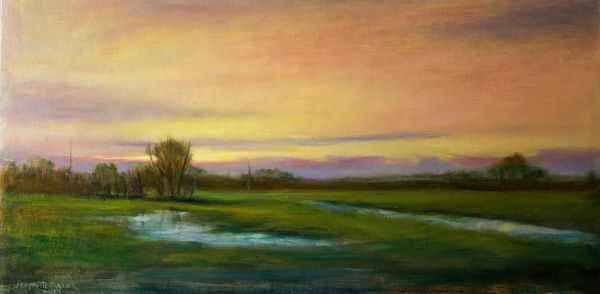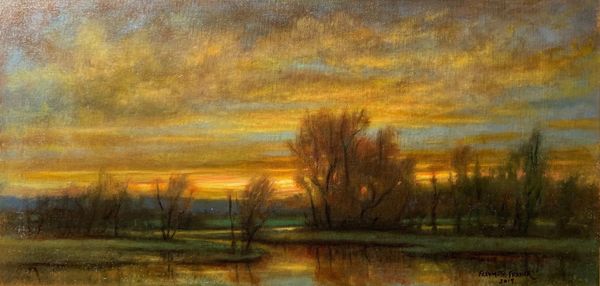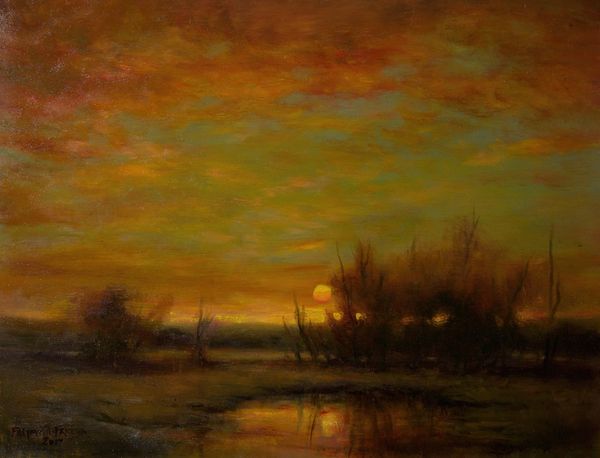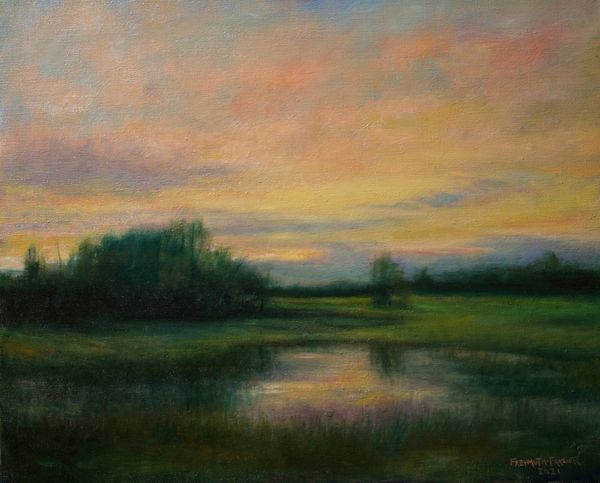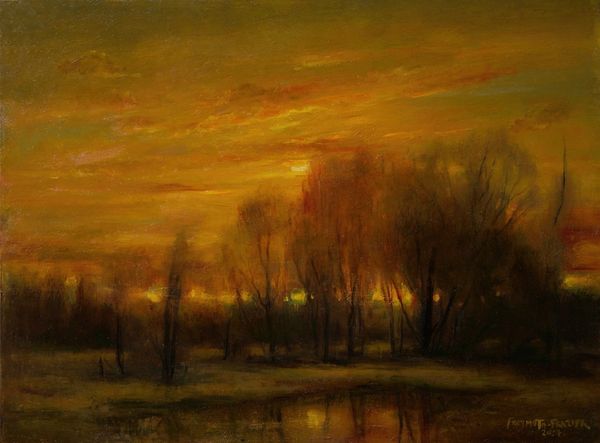
painting, plein-air, impasto
#
abstract painting
#
painting
#
plein-air
#
landscape
#
nature
#
impasto
#
abstraction
Copyright: Modern Artists: Artvee
Editor: Here we have Rose Freymuth-Frazier's 2016 painting, "Day's End," made *en plein air* with an impasto technique. The sunset creates a somber mood, but is it also perhaps peaceful? What is your reading of the work? Curator: It’s interesting to consider the title in relation to the scene. “Day’s End” evokes not just a literal sunset, but the conclusion of a period – maybe a project, a relationship, even a way of life. The artist is painting *en plein air*, outside, immersed in the environment and also time period. Does this speak to themes of loss, or perhaps of transformation? How might the impasto application express immediacy or emotion in connection to nature? Editor: I hadn't thought about it that way, beyond it being an obvious sunset. Is there something about landscape art, or maybe this type of art in particular, that draws artists to connect it with particular ideas? Curator: Landscape, and our relationship with it, has always been heavily politicized. The ownership of land, our responsibility toward nature. Given that Frazier is a female artist and this work depicts a sunset, I would interpret it in terms of ecofeminism, which connects the oppression of women and the oppression of nature, for example in this case due to industrial expansion, or climate change. Editor: So you are suggesting we look at the painting through the lens of climate change or a call for social justice, due to ecofeminism ideas. That is really enlightening, thank you! Curator: The canvas glows with its golden hour reflections! It makes you wonder, what does a "day's end" signify for different individuals within diverse socio-political landscapes? Something hopeful, maybe?
Comments
No comments
Be the first to comment and join the conversation on the ultimate creative platform.
